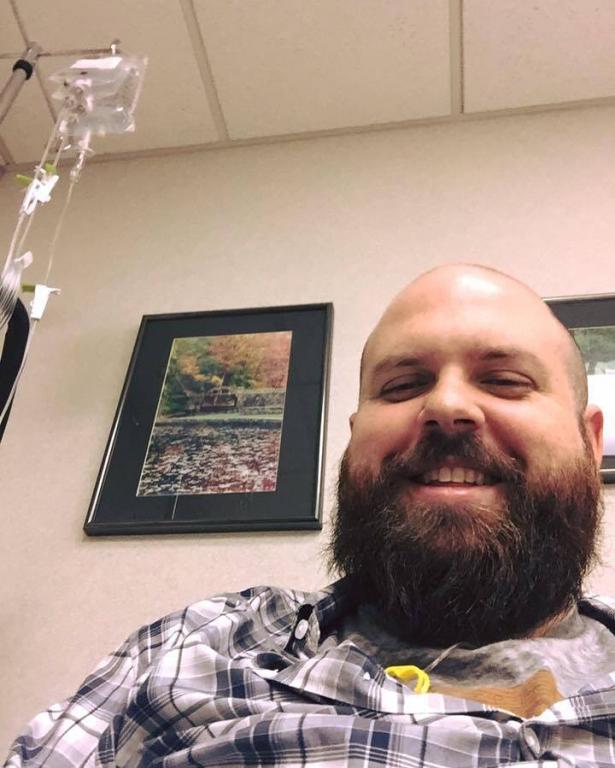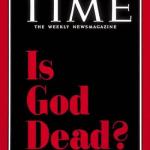“I don’t want to be a damn flower.”
The thought raced through my mind before I even knew what my brain was saying to itself the first time I showed up in the oncologist’s office to find out if the giant mass growing in my chest was cancer or not.
The flower itself was beautiful, both in appearance and sentiment.
A white orchid brushed with just the slightest touch of pink, it was a kind memorial to a woman I’ll never know who lost her battle with cancer years before I ever walked through the doors of Hartford Hospital.
And it was the last thing I wanted to see while I checked into the oncologist’s office.
I’m acutely aware of the fact that that probably makes me sound like a massive asshole.
And I’m also acutely aware of the fact that simply using the words “damn” and “asshole” is enough for some people to check out of this post altogether and send me messages reprimanding my use of “unwholesome language.”
But here’s the thing.
Actually, here’s the two things.
First, if using mildly harsh language to talk about my battle with cancer bothers you, then you have my envy. I would love to have a life where legalism was my biggest concern, rather than a relapse of Hodgkin’s that will leave me with a 50/50 chance of seeing my little girls grow up to be the incredible women I know they’re going to be.
Cancer is a nightmare and it deserves the harshest language we can throw at it.
Second and more importantly, I can absolutely guarantee you I’m not the only one who’s looked at that otherwise beautiful orchid and had the same visceral reaction. In fact, I’d be willing to bet a large sum of money that every single oncology patient who’s ever signed in at that front desk – including every single one of the ever present sweet old ladies in the oncology waiting room who have never uttered a word of ill will toward anyone – felt the exact same way even if they’ve never said it aloud.
How do I know?
Because no matter who you are, the last thing you want to be reminded of when you’re walking into the oncologist’s office is the harsh reality that you’re not there for a flu shot.
You’re there to cheat death.
Which is why it’s fitting I was diagnosed with cancer one year ago this past weekend – in the heart of the Easter season.
For me, cancer has been a testament to the resurrecting power of God.
Why?
Because my cancer is gone.
I’ve been healed.
Brought back from the dead.
Not by an action packed, awe inspiring, special effects heavy miracle, but by the resurrecting power of a God who works in ways and through people and in places we never expect.
For me, God didn’t appear in a burning bush or a pillar of clouds or a parted sea, but God appeared. Long before I could even say the word “cancer” God was at work in the world working through the hearts and minds of scientists and medical professionals, giving them the wisdom, dedication, and insight necessary to create a miracle: the cure for my cancer.
For me, God appeared in the form of a cocktail of drugs that I could take once a week sitting comfortably in a La-Z-Boy recliner while binging on Netflix. And God also appeared in the form of a complex radiation machine whose inner workings I’ll never understand.
God appeared and God brought me back from the dead.
But God didn’t stop there. God didn’t just appear in the form of chemotherapy and radiation. There were countless other moments when the people of God intentionally stepped into my life in the name of Jesus to offer me love and support, but there have also been just as many more unexpected moments when God made God’s presence known in my life through the actions of people who neither came in the name of Jesus nor even claimed him as Lord.
People like my doctor who worked diligently to make sure I was getting the best course of cancer treatment possible or my nurse who took care of me during my chemo infusions or the strangers who recommended using lidocaine so my port hook ups weren’t quite so painful or my friends who texted me weekly just to see how I was doing and countless other moments of grace from friends and strangers alike over the course of my treatment that made God’s grace and presence known to me in moments I didn’t expect, in ways I didn’t think possible, and through people I was taught not to even look for the love of God in.
People like Jackie and Alec.
At the time of my diagnosis, my wife and I were living in Connecticut, a thousand miles away from almost all of our family and friends. But we did have Jackie and Alec. Their love and support during that time were the very definition of Christlikeness. When we needed childcare, they watched our kids. When we needed food, they didn’t just make us food, they made us enough food to feed a small army and then (along with Jackie’s mom) brought over a portable freezer to store it all in. And when we weren’t sure how we were going to pay a growing mountain of bills, they started a GoFundMe page that raised enough money to pay for my medical bills, our moving costs, and then some.
Jackie and Alec were Christ to me when I needed Christ the most.
Even though they’re atheists.
I was hungry and they fed me. I was thirsty and they gave me something to drink. I was sick and they comforted me. I was the least of these and they took care of me.
They were God at work in my life in people and places and ways I didn’t expect.
But if the Bible is any indication, that’s exactly how God likes to work, showing up in unexpected ways in unexpected places through unexpected people to do the unimaginable.
It’s not just in the story of the resurrection that God does that sort of thing.
It’s the story of the entire Bible.
In Genesis, we meet Abraham, a liar and adulterer through whom God created a nation and blessed all of mankind. In Exodus, we meet Moses, a murderer and outcast who set the people of God free and led them to the Promised Land. In Numbers, God speaks through a donkey. In Joshua, God works through a prostitute named Rahab. In 1 Kings, God’s not in the wind, the fire, or a mighty earthquake, but a still small voice. In Jonah, God brings about transformation through a big fish. In the Gospels, God redeems all of creation through a poor carpenter from a backwater town. In the resurrection, Jesus shows up time and again when and where he’s least expected. And in Acts, the Church spreads across the Gentile world in large part thanks to a former terrorist turned apostle named Paul who then goes on to write much of what we now call the New Testament.
When Jesus shows up in unexpected places after the resurrection it’s just a continuation of God doing the same thing throughout the Bible and when God continues to show up in unexpected places in unexpected ways and through unexpected people in our lives today, it’s a testament to what actually changed after the resurrection.
Over the course of 66 biblical books we witness a God who intervenes in history in the Old Testament but mostly dwells above and beyond then become a God who is incarnated in one man named Jesus, a man who lives and dies and is crucified only to be resurrected at which point God moves once more as his body is broken and opened up to become present in all of us through the Holy Spirit.
God is a God who works through unexpected people in unexpected ways in unexpected places to do the unimaginable.
And that includes curing cancer.
Which is why as I look back over the past year of my life, I’m convinced now more than ever that the lines we try to draw around when and where and how and through whom God can act aren’t just an exercise in futility.
They’re an act of blasphemy.
Not the overt, intentional blasphemy that leads holy folks to tear their clothes asunder, but a subtle, insidious blasphemy that belies contempt for a God who would dare to dwell outside our control, who would use people we deem unacceptable, and who would have the audacity to challenge the limits we place on grace.
Thanks be for such a God.
For without that God working in unexpected ways in unexpected places through unexpected people to do the unimaginable, I wouldn’t be here today.
And I’m willing to bet, neither would you.













